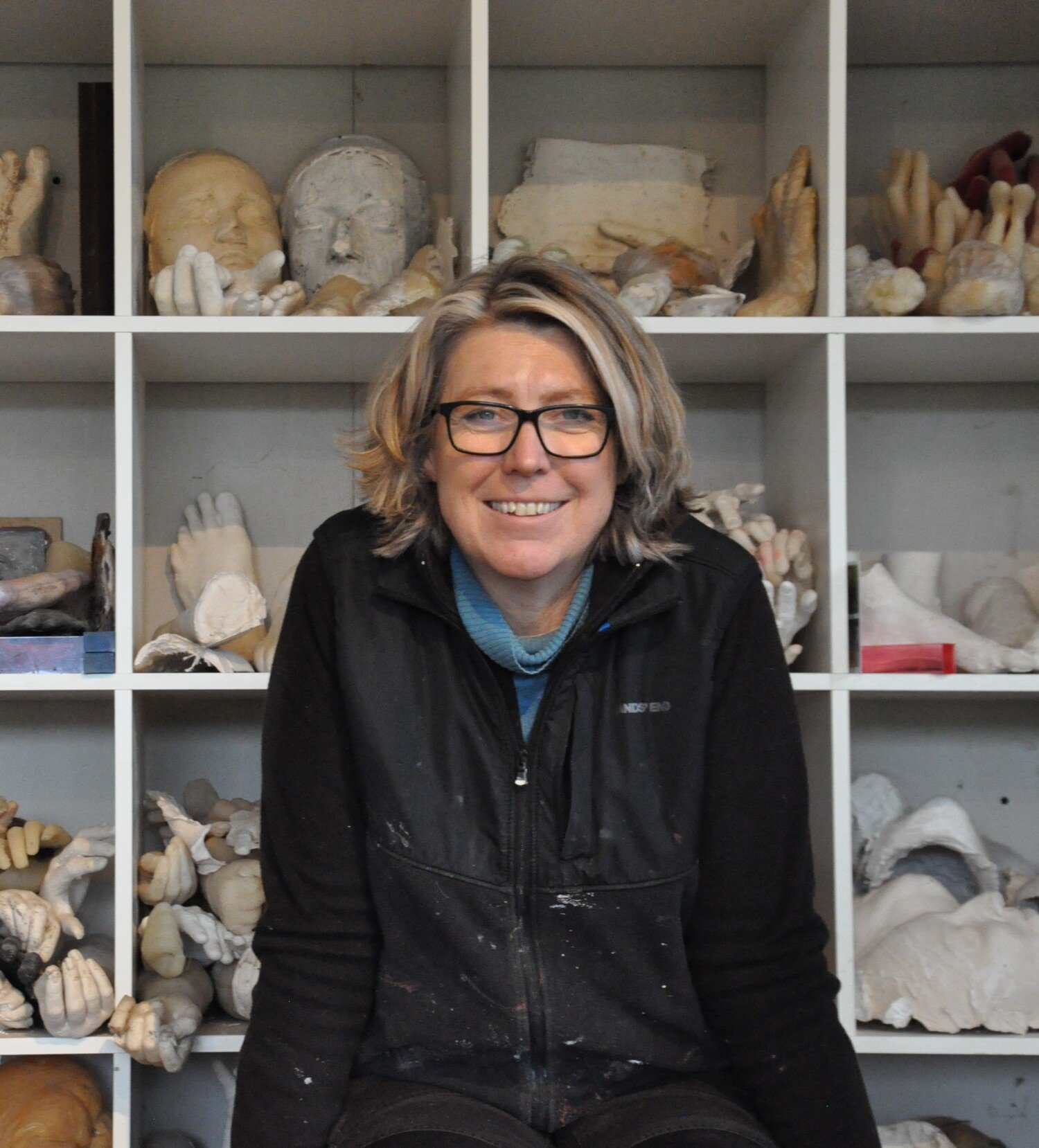Programme - Education Congress 2024
During this year's Educational Congress 2-3 October we delve into the theme of "Exploring the Human Dimensions of Education." Through this lens, we aim to embrace the intricate interplay between humanity and education within the healthcare domain.

The programme
This congress offers a rare blend of the arts, humanities, and cutting-edge innovations in healthcare education. Don’t miss out on this unique opportunity to broaden your perspective and connect with global thought leaders in the field!
Day 1
Morning: Keynotes to inspire and challenge. Start your day with powerful insights from two leading voices in healthcare education:
- Gabrielle Finn explores "The Human Touch: Integrating Humanities into Healthcare Teaching and Research". Discover how the arts and humanities can transform healthcare education, from fostering empathy and enhancing clinical skills to tackling issues like gender discrimination through poetic inquiry.
- Jennifer Cleland, KIPRIME awardee, will address "The Wicked Problem of Medical Education". She confronts the complex challenges of educating the next generation of health professionals in a resource-limited, ever-evolving system.
Afternoon: The afternoon opens up space for deeper exploration through oral presentations, where participants can choose tracks based on their interests.
Day 2
Morning: Begins with two thought-provoking keynotes:
- Eleonora Leopard will present "Do You Know What I Meme?", a fascinating look into how memes - today's visual language of the digital age - are shaping communication, especially for Generation Y and Z.
- Jane Ege Möller continues the conversation with "Stories That Shape Us: Exploring Identity, Learning, and Culture in Healthcare."
Afternoon: Clinical Education and workshops. The afternoon features focused workshops, offering a range of opportunities to engage deeply with pressing topics in healthcare education. Yor can also participate in a clinical track.
Programme 2 October
Registration, coffee and sandwich
Berzelius, Berzelius väg 3.
Opening Educational Congress 2024
Annika Östman Wernerson, President of Karolinska Institutet.
Welcome and introduce opening Key note speaker
Maria Watter, Operations Director Unit for Teaching and Learning, KI.
Keynote: Gabrielle Finn
Professor Gabrielle Finn, Associate Vice-President (AVP) for Teaching, Learning and Students at the University of Manchester. The Human Touch: Integrating Humanities into Healthcare teaching and research.
Break
Presentation of KIPRIME Awardee 2024
Professor Brian Hodges and Professor Anna Kiessling.
Keynote: Jennifer Cleland - KIPRIME Awardee 2024
"The wicked problem of medical education".
KI praises Professor Jennifer Cleland's educational research.
Lunch
13:00-16:15 Oral sessions (with coffee break)
Choose beteween the tracks below. Will be updated with premises.
Active Learning (KIB Torget)
- Peer-to-peer-led learning sessions with NeoNatalieLive in a Tanzanian context - Eva Christina Furskog-Risa
- Active student engagement in online doctoral education in the COVID-19 era: Challenges and opportunities - A qualitative study - Anna-Karin Welmer
- An exploration of students' use of digital resources for self study in anatomy: a survey study - Anna Pettersson
- Decoding DNA Dialogues: A Journey into Genetic Counselling Education - Katinka Tell
- Exploring Teacher Perceptions During Team-Based Learning Implementation in the Six-year Medical Programme - Henrika Florén, Juha Nieminen, Anna Kiessling
- Peer-to-peer-led learning sessions with NeoNatalieLive in a Tanzanian context - Eva Christina Furskog-Risa
- Fostering Professional Writing at the Study Programme in Speech and Language Pathology - Sofia Strömbergsson, Anna Eva Hallin
- Enhancing patient learning: A holistic approach to pedagogy in nursing - Tina Gustavell
Clinical education (Franklin)
- Clinical education ward - a ten year follow up on nursings students' experiences of learning - Katri Manninen
- Development of a sustainable pedagogical model to enhance nurses' ability to support patient learning - Lena-Marie Petersson
- Clinical supervisor’s perspectives of supervision in perioperative and intensive care - A pedagogical developing
project. - Carina Surell, Veronica Ramirez Johansson, Johanna Rydström, Karin Lindblad - Focus on threshold concepts and troublesome knowledge - a strategy to streamline medical student's
learning towards clinical and professional competence - Kristina Hagwall - Lost in Transition: From Medical Student to Clinical Supervisor. A Mixed-Methods Study. - Capucine Delorme
- (sv) Det extraordinära gör det vanliga synligt - sjuksköterskestudenters upplevelser av sitt lärande i klinisk praktik under COVID-19: en kvalitativ studie. - Carina Georg
Sustainability (Rolf Bergin)
- Education for sustainable development: exploring course syllabuses and educator perspectives within Swedish undergraduate physiotherapy programs. - Emma Swärdh
- ePlanet – a serious digital game aiming to connect dots for a healthier planet - Karin Leander
- Integrating the UN sustainability development goals in undergraduate biochemistry teaching - Manuel Zeitelhofer
- Empowering Educators: Integrating Sustainable Health in Healthcare Professionals’ - Karin Båge, Fina Hossain
- Towards a sustainable working life among patients and healthcare workers through early educational efforts - Karin Leander, Åsa Chaikiat Ståhl
- Sustainable learning from bachelor’s thesis to professional nursing practice: a qualitative interview study - Ani Henttonen
- Innovative Teaching on how to Find Solutions for the Wicked Problems of Sustainable Health - Nina Viberg
Course design and curriculum (Scheele)
- Are we ready for patient involvement in education? – Current state of research and practice - Elias Schriwer
- Entrusted Professional Activities (EPA) in medical education at Karolinska Institutet: successful example of lumbar puncture EPA - Virginija Danylaite Karrenbauer
- Programmatic assessment of professionalism in medical students - Marie Dahlin
- (sv) Utforma två nya kurser baserade på föreskrifterna om Systematiskt Arbetsmiljöarbete. - Emma Brulin
- Skills4 Health Literacy - an Erasmus+ project promoting knowledge about health literacy and dementia - Camilla Malinowsky, Josefin Wångdahl, Emma Swärdh, Åsa Craftman
- Training empathic communication for undergraduate nursing students during their clinical placement - a pilot project at Theme Cancer, Karolinska University Hospital - Hanna Dubois
- Continuous assessment as a possible predictive tool in a constructively aligned Anatomy curriculum - Ivan Banovac
Human Aspects (Skelettet, KIB)
- Becoming more than the bureaucrat of the body”. Institutional impact and enduring effects on medical students of medical humanities teaching - Alexander Tejera
- A bridge over troubled waters: An exploration of master students’ experiences with troublesome knowledge at Karolinska Institute - Hanna Jansson, Tara Faghani Hamadani
- Exploring University students' perception of research - Madelen Lek
- Leaving the lab/ward- entering the field of medical education research - Amrah Heikkinen, Karin Landberg
- Meeting a societal need: Developing a new master's program in strategic work environment management. - Emma Brulin, Annika Lindahl Norberg, Jenny Selander
- Academia and industry co-production through Practical placement - an educational and value creation perspective - Susanne Von Holst
- (sv) Ett pedagogiskt råd för att underlätta studenters interprofessionella lärande. - Malin Einarsson, Elisabeth Hedberg
Technology AI (Synapsen 1)
- Digitalizing nursing education amid Covid-19: technological breakdown through a reflexive and Postphenomenological lens - Anette Forss
- Co-designing digital simulation-based education for physiotherapy: Explorative study of content and features to stimulate learning of clinical skills - Ann Bylund
- The International Partner Programme (IPP): Appling a Collaborative Online International Learning framework to engage with Occupational Therapy students worldwide - Mandana Fallah Pour
- Assessing Medical Student Assignments on Breast Cancer Treatment with ChatGPT: A feasibility study - Lisa Villabona
- It was a far cry from a welcome gift, really - Integration of basic science into virtual patient cases to enhance clinical reasoning skills - Karl Rombo
- (sv) Användning av ett telefonbaserat beslutsstödsystem inom vård i utbildningen - specialistsjuksköterskestudenters upplevelser - Susanna Sandelius, Lise-Lott Rydström
- Innovating Digital Skills Training Through Pedagogical Design - Henrika Florén, Marcus Emas, Marie Bergström
Faculty developement and scientific methodology (Synapsen 2)
- Evaluation of a model for continuous pedagogical development - Scholarship of Teaching and Learning - Lena Engqvist Boman
- Enhancing employee performance in public media tertiary institutions in Ghana: The organizational culture factor - Benedicta Senam Lartey
- “Knowing me, knowing you” - Strengthening Hospital Placement for Medical Students Through Group Mentorship - Monika Kvernenes
- “Is it really possible to learn?” A qualitative study on how undergraduate nursing students approach their learning about leadership - Ulrika Schüldt Håård
- Supporting the Scholarship of Teaching and Learning: A New Approach to Pedagogical Development at Karolinska Institutet - Agnes Elmberger
- (sv) Utbildningsansvarig Capio Geriatrik - Anna-Maria Åkergården, Johanna Fredenstedt
- (sv) Hur implementerar man REPO vetenskapscafé i en akutorganisation - May-Lena Färnert

Workshops
Get creative and hands-on with two exciting workshops in the Gallery Sandberg Andersson.
Venue: GSA Gallery, Hudiksvallsgatan 6.
Please note, for workshops, you will receive a separate link in your email to register, once you have registered for the Educational Congress.
Drawing (13:00-14:30)
In this workshop, we'll integrate aspects of automatic drawing, albeit not in its purest form, along with the somatic experience of drawing through speed drawing techniques. We will delve into mark making and explore responsive drawing from the subconscious.
Facilitator: Lucy Glendinning, FRSS, a UK-based sculptor and installation artist, exhibiting extensive international over the past two decades. Her work is influenced and often derived from medical research, and she regularly works collaboratively with scientists.
Improve your skills to observe and interpret: Visual arts as a catalyst (14:45-16:15)
In this workshop we will use contemporary art as a catalyst to improve your observation and interpretation skills. You will be invited to view and reflect on a number of paintings/photos in a gallery space, individually and in peer-groups. Through a three-step process you will expand your perception. The workshop is a demonstration of how the process of using visual arts in learning can work. The workshop will conclude with a conversation on the meta cognitive aspects included in using art in health professions education.
Facilitator: Jonas Nordquist, PhD. Jonas Nordquist is a senior researcher in medical education at Karolinska Institutet with separate degrees in art history and performing arts. He uses visual arts and dramatic arts extensively in his teaching.

16:30 Conference mingle!
Let's meet in BZ, Berzelius väg 3.
Come join us to have a drink, a light snack and a chat about your experiences during the day.
17:00: Performance from A Scalpella, KI's Medical Student Union Chamber Choir.
Programme 3 October
Opening
Ewa Ehrenborg, Academic vice president.
Berzelius, Berzelius väg 3.
"KLOK priset" awarded
Do you know what I meme?
Modern memes and their meaning: a metatextual performance, with Eleonora Leopardi.
Berzelius.
Stories That Shape Us: Exploring Identity, Learning, and Culture in Healthcare
With Jane Ege Möller.
Break
From me to us, but what about them and all the others
Culture and socialization in Interprofessional Learning.
Panel discussion with Gabrielle Finn, Lucy Glendinning, Eleonora Leopardi and Jane Möller. Led by Jonas Nordquist.
Berzelius.
Symposium: "MedEd research in Sweden and Norway"
Monika Kvernenes, Samuel Edelbring and Terese Stenfors.
Torget (KIB).
Clinical track workshop: Bedömning och återkoppling under VIL/VFU
(in Swedish)
Riitta Möller and Clinical-based Education, Unit for Teaching and Learning. More information about this session.
Larsdotter.
Workshops
Register for the workshop you like to attend via a link sent in a separate e-mail.
13:00-14:30
Narrative matter, using pedagogical tool from narrative medicine in higher education within health care - Staffan Josephsson, Valdemar Erling, Maria Lindström, Linda Timm
Virtual Patients: An Innovative Tool for Education - Karolina Sörman, Joachim Eckerström
Interaktion mellan student och patient i primärvården - reflektionens betydelse i lärande och vårdande - Eva Sundborg, Veronica Lindström, Albertine Ranheim
Exploring head, heart and hands in teaching and learning for planetary health - Amani Eltayb, Emma Swärdh
14:45-16:15
Pedagogik och lärande - Att lära ut så att mottagaren lär in - Cecilia Grönroos
How to activate student learning with video - Karin Björklund, Ida Renström
How to implement and evaluate an outcome-based health profession education course or program - Caroline Barner
Integrating anti-racism and fostering an inclusive climate in education - Kristina Ullgren, Natalie Jellinek, Manojj Dhinakaran
When: 2-3 October, 2024.
Where: KI Campus in Solna (Stockholm).
Who: The Educational Congress is a meeting place for you who are involved in or interested in educational issues, both on campus and in the healthcare sector.
The Educational Congress is organised by Teaching and Learning, on behalf of the Committee for Higher Education, and the Committee for Doctoral Education.
